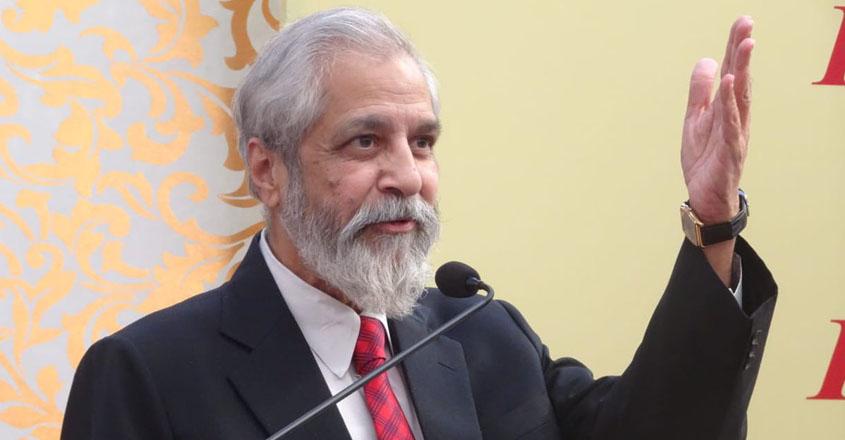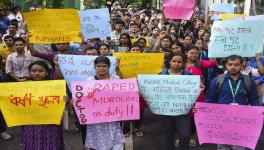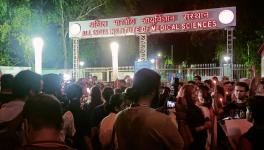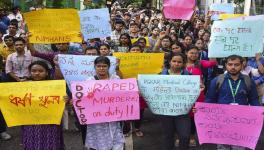‘Astonishing’, Need White Paper on Remission in Bilkis Bano: Justice Madan Lokur

Retired Supreme Court Judge, Madan Lokur.
Former Supreme Court judge Justice Madan B Lokur has called for a deeper examination of how a committee of the Gujarat government recently granted remission to eleven men convicted of mass murder and gang rapes in the Bilkis Bano case. Speaking to NewsClick, Justice Lokur said he found the remission in this case “rather astonishing”. The former judge said, “I think we need a White Paper on the entire episode.”
The remission granted to men convicted of brutal criminal assaults during the communal conflagration in Gujarat in 2002 has become a litmus test for women’s rights in India. It has also made people wonder if the judiciary can protect these rights against State overreach. What makes matters worse is remission for the brutal mass murderers and rapists came on Independence Day.
It is important to note that Justice Lokur is not the only former judge who has spoken out against the remission. It prompted former Bombay High Court Justice UD Salvi, who led the CBI court that convicted the eleven men, to describe the remission as a “rebellion against the judicial apparatus”. Retired justice Deepak Gupta of the Supreme Court of India has also termed this remission immoral, unfair and unjust. Justice Lokur, who retired from the Supreme Court in 2018, earlier said that news of the remission came as an “unpleasant surprise”.
NewsClick asked Justice Lokur if the Supreme Court could undo the injustice done to Bilkis Bano. He responded that the law is “very much in favour of overturning the remission”. He also said, “I am quite hopeful that justice will be done.” However, since the remission order is not in the public domain, he could not comment on the grounds relied upon by the committee to allow the remission. In this context, he said, “Prima facie, granting remission to all eleven convicts will require strong justification. The remission order will certainly be worth seeing.”
A key question, in this case, is what signal it has sent to women. Justice Lokur said, “The remission order sends out a message that conviction does not mean that justice has been done. Gender justice has a long way to go.”
This remission also has socio-political ramifications. For example, there is a demand of the Shiromani Gurudwara Parbandhak Committee (SGPC), which oversees Sikh religious matters, to release Sikh prisoners who are known to have completed their life terms. Members of the SGPC staged a protest at Harmandir Sahib after the remission in the Bilkis Bano case, reiterating this demand. Some prisoners whose release the SGPC seeks were arrested during the phase of militancy in Punjab.
Justice Lokur says, “Of course, this [remission in Bilkis Bano case] could be a precedent for granting remission even in case of heinous crimes. The fallout of the remission order is quite obvious. I’m not surprised by the [SGPC] protest.”
Remission of crimes seen as rarest of rare, or extreme in their cruelty and danger posed to society, could encourage other criminals and convicts, not to mention state governments seeking to benefit from polarising society or lowering the status of women.
Convicts may also feel entitled to release on specious grounds, considering a member of the committee that granted remission in the Bilkis Bano case defended the convicts as well-behaved for they belonged to the elite Brahmin caste.
Another key concern in the remission in the Bilkis Bano case is why none of the eleven convicts ever appealed to the Supreme Court against the Bombay High Court order sentencing them. It is generally understood that convicts seek remission whenever the option becomes available to them under the law. Justice Lokur expresses surprise in this aspect of the case. “Frankly, I find this rather astonishing. In most such cases [of convictions for heinous crimes], where a life sentence is given, the convict will file an appeal in the highest court, but this did not happen with even one of the eleven who had been convicted,” he said. He then said a white paper is required on the entire episode.
The question arises, can the Supreme Court step in once the committee in Gujarat has granted remission? Reportedly, the consent of the CBI court judge who convicted these eleven men is necessitated by the law but was not taken. However, there are not enough details in the public domain to arrive at a conclusion.
“The law is intended to protect people and enable them to live an orderly life,” Justice Lokur said. He added, “Unfortunately, the law is now being weaponised to prosecute and persecute people. Tragically, we are passing through this phase.” He rued that things have come to this pass because “some are more equal than others” in our country.
Justice Lokur agrees “absolutely” that the remission in the Bilkis Bano case is a symptom of majoritarian rule with the tacit support of the government. This is also because some convicts in the Bilkis Bano case were found guilty of committing numerous heinous crimes. He said, “Some (if not all) of the eleven have been given more than one life sentence—two definitely, and perhaps more. If such people are entitled to remission, we need to introspect and seriously consider where we are heading.”
Most importantly, Justice Lokur said, “As it is, women have a tough time dealing with offences such as domestic violence, dowry demands, sexual harassment and so on. Dealing with sexual offences has always been a problem.”
It is no wonder that on hearing of the release of the eleven convicts, Bilkis Bano said, “Is this the end of justice?” The question before Indian women is, where must they turn if justice is no longer dispensed with an even hand.
The author is a freelance journalist. The views are personal.
Get the latest reports & analysis with people's perspective on Protests, movements & deep analytical videos, discussions of the current affairs in your Telegram app. Subscribe to NewsClick's Telegram channel & get Real-Time updates on stories, as they get published on our website.
























